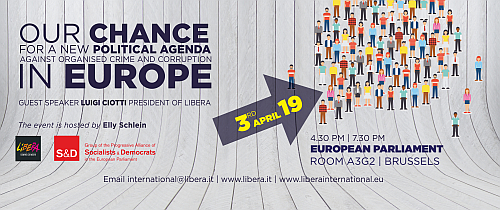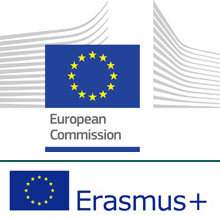The Mafia knows no bounds. It acts transnationally. Not only in drug trafficking, but also in food counterfeiting, money laundering, human trafficking and other areas: state or organisational borders do not play a role, on the contrary, they even help.
Their opponents, on the other hand, still find it difficult to act just as internationally and to cooperate across borders. Operation “Pollino” in December 2018 was the first joint European investigation action that went beyond purely international legal assistance, see several newsletter articles by mafianeindanke.
But there is still much to be done: for example, there is no systematic (crown) witness questioning across national borders. There is a need for action on the part of politicians and authorities. This is one of many demands of mafia thanks.
The civil sector is also still struggling with systematic European cooperation in the fight against corruption and organised crime. Legislative demands are usually only made at national level, individual organisations are often too weak to be heard at EU level – where more than two thirds of national laws originate – unless they are well networked as Mafia thanks to founder and former Member of the European Parliament Laura Garavini.
That is about to change. As already reported in the December newsletter, thanks to the Mafia, it is part of a European network of anti-Mafia organisations initiated by Libera Internazionale. On the last weekend of February, activists from various organisations from 10 European countries met in Brussels to agree on a common political agenda and a name for the European network newly founded at the end of 2018:
CHANCE – Civil Hub Against orgaNised Crime in Europe
The first joint action of the new coordination and action network is an important one: On 3 April in Brussels, CHANCE will present its political agenda to the European Commission and some key figures of the outgoing European Parliament. The 13 points cover a broad spectrum. From improvements in the fight against money laundering, protection of witnesses and journalists, confiscation of mafia property and its systematic use by civil society to a change of strategy in the field of drug trafficking. At the top of the agenda is an equally systemic demand: a kind of “Round Table” or “Permanent Conference” for systematic cooperation between civil society and authorities.
This extensive political agenda has been prepared over the last few months by the network members and finalised at the three-day meeting with professional advisers. On the first day, supported by an expert in the field of “Home Affairs” – i.e. an expert on the internal affairs of the European Commission – the topic of internal security was also included. On the second day, CHANCE was advised by a former Italian public prosecutor, who is very familiar with the current state of discussions at EU level on anti-Mafia legislation, among other things.
Details on the political agenda of CHANCE and the meeting on 3 April 2019 will be given in the next newsletter.


